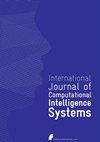人工免疫网络在电子商务信用风险评估中的应用
IF 2.9
4区 计算机科学
International Journal of Computational Intelligence Systems
Pub Date : 2023-09-26
DOI:10.1007/s44196-023-00335-1
引用次数: 0
摘要
摘要为了提高电子商务信用风险评估的准确性,本文提出利用人工免疫网络对文本挖掘算法进行升级。通过这一过程,可以构建基于改进算法的电子商务风险评估模型,从而降低数字交易中风险发生的可能性。结果表明,改进聚类算法的准确率和损失率分别为97.3%和4.3%,均优于对比算法。然后,对本文提出的电子商务信用风险评估模型进行实证分析,模型稳定后的平均适应度和准确率分别为0.0022和95.63%,表现出优于比较模型的性能。以上结果表明,改进后的算法和风险评估模型具有良好的性能。因此,利用该模型对电子商务信用风险进行评估,不仅可以提高信用评估的准确性,还可以促进电子商务的可持续发展。此外,它可以催化采用创新的信用评估方法,促进人工智能技术在电子商务中的应用。本文章由计算机程序翻译,如有差异,请以英文原文为准。
The Application of Artificial Immune Network in E-Commerce Credit Risk Assessment
Abstract In order to improve the accuracy of e-commerce credit risk assessment, this paper suggests utilizing an artificial immune network to upgrade the text mining algorithm. Through this process, a new e-commerce risk assessment model reliant on the improved algorithm can be constructed with the intention of decreasing the likelihood of risk in digital transactions. The results show that the accuracy and loss rate of the improved clustering algorithm are 97.3% and 4.3%, respectively, both of which are better than the comparison algorithm. Then, the empirical analysis of the e-commerce credit risk assessment model proposed in the study shows that the average fitness and accuracy of the model after stability are 0.0022 and 95.63%, respectively, demonstrating superior performance compared to the comparison model. The above results show that the improved algorithm and the risk assessment model have good performance. Therefore, using this model to evaluate the credit risk of e-commerce can not only improve the accuracy of credit evaluation and promote the sustainable development of e-commerce. Furthermore, it can catalyze the adoption of innovative credit evaluation methods and promote the application of artificial intelligence technology in e-commerce.
求助全文
通过发布文献求助,成功后即可免费获取论文全文。
去求助
来源期刊

International Journal of Computational Intelligence Systems
工程技术-计算机:跨学科应用
自引率
3.40%
发文量
94
期刊介绍:
The International Journal of Computational Intelligence Systems publishes original research on all aspects of applied computational intelligence, especially targeting papers demonstrating the use of techniques and methods originating from computational intelligence theory. The core theories of computational intelligence are fuzzy logic, neural networks, evolutionary computation and probabilistic reasoning. The journal publishes only articles related to the use of computational intelligence and broadly covers the following topics:
-Autonomous reasoning-
Bio-informatics-
Cloud computing-
Condition monitoring-
Data science-
Data mining-
Data visualization-
Decision support systems-
Fault diagnosis-
Intelligent information retrieval-
Human-machine interaction and interfaces-
Image processing-
Internet and networks-
Noise analysis-
Pattern recognition-
Prediction systems-
Power (nuclear) safety systems-
Process and system control-
Real-time systems-
Risk analysis and safety-related issues-
Robotics-
Signal and image processing-
IoT and smart environments-
Systems integration-
System control-
System modelling and optimization-
Telecommunications-
Time series prediction-
Warning systems-
Virtual reality-
Web intelligence-
Deep learning
 求助内容:
求助内容: 应助结果提醒方式:
应助结果提醒方式:


